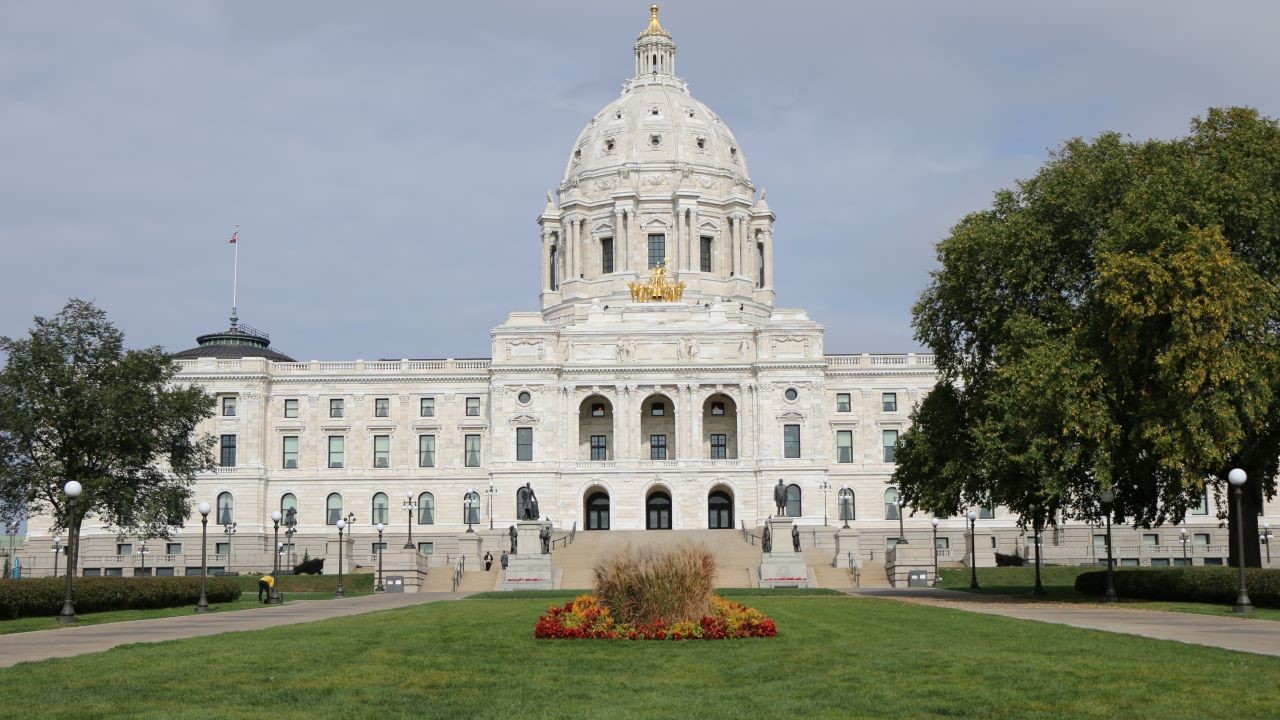
Last year was one of the most impactful for clean energy and climate at the Minnesota Legislature since 2007 with a range of important energy policies advanced including the bipartisan Natural Gas Innovation Act, Energy Conservation and Optimization (ECO) Act, and significant new investments in solar energy —to name just a few. These accomplishments are proof that Minnesota can still get things done for our climate, even as the only split-control legislature in the country. Need a refresher? Read our full 2021 session recap.
Even though special sessions of the Minnesota Legislature that progressed into the summer kept Fresh Energy’s Public Affairs team on the go, it didn’t stop us from also beginning to plan for an equally impactful 2022 Legislative Session.
Identifying legislative priorities for 2022
While there are hundreds of possible legislative goals for Fresh Energy to pursue each year, we take a uniquely democratic approach. Fresh Energy’s policy staff are encouraged to submit their own policy proposals to the Public Affairs team after analyzing Minnesota’s current energy policies and determining which need updating, working with stakeholders and other nonprofit partners to identify policy needs and collaborative opportunities, and researching effective energy policies in other Midwestern and cold-weather states. Each year this results in dozens of unique ideas for the Public Affairs team to explore and in some cases pursue.
Even though the 2022 session of the Minnesota Legislature begins at the end of January, there is still much to be determined. With an unprecedented $7.7 billion state budget surplus, a likely negotiation over a potential bonding bill, and the promise of federal infrastructure funding coming to Minnesota, the stakes this session are as high as ever.
Federal funds headed to Minnesota
Minnesota can expect significant funds from the Infrastructure Investment and Jobs Act for things including electric vehicles, public transit, weatherization assistance, transmission and grid, coal plant community transition, and more, but we don’t yet know when the money will be fully available for Minnesota. It may be as late as this summer by the time Federal agencies are able to provide guidance to the state, which could in turn trigger another summer of special sessions (which are unfortunately beginning to feel normal at this point).
To further complicate things, we have yet to see in what form the Build Back Better Act (BBBA) will come to fruition. BBBA will greatly augment the funds already headed to Minnesota from the infrastructure bill. Fresh Energy continues to advocate and apply pressure for the BBBA at all levels and is putting significant trust and support into the efforts of Minnesota’s U.S. Senators Tina Smith and Amy Klobuchar and state leaders including Governor Tim Walz.
State legislative goals and surplus considerations
Federal work aside, Minnesota legislators have their work cut out for them this year. We anticipate that infused into all policy debates will be the hot button issue of Minnesota’s budget surplus and how it should be spent. Even-numbered years (like 2022) are traditionally “bonding years” in Minnesota when the Legislature considers a large public works bill that should easily exceed $1 billion. While there will be no shortage of ideas for what should be done with the budget surplus, bonding bill, and Federal investments, this year is a tremendous opportunity for policymakers to make their first real down payment on the equitable clean economy of the future.
On the policy front, Fresh Energy will be striving to carry the momentum from last year into 2022 by engaging in conversations around a potential clean fuels policy for Minnesota, continuing to push for strong energy codes for commercial buildings in Minnesota, and a potpourri of more consumer-focused energy policies that would help Minnesotans’ pocketbooks as they upgrade their home appliances and more.
Keep an eye on Fresh Energy’s blog and social media for updates as session ramps up and tune into our January 28, 2022, recording of Decarbonize: The Clean Energy Podcast for even more details from the Public Affairs team and Fresh Energy’s executive director Michael Noble.
